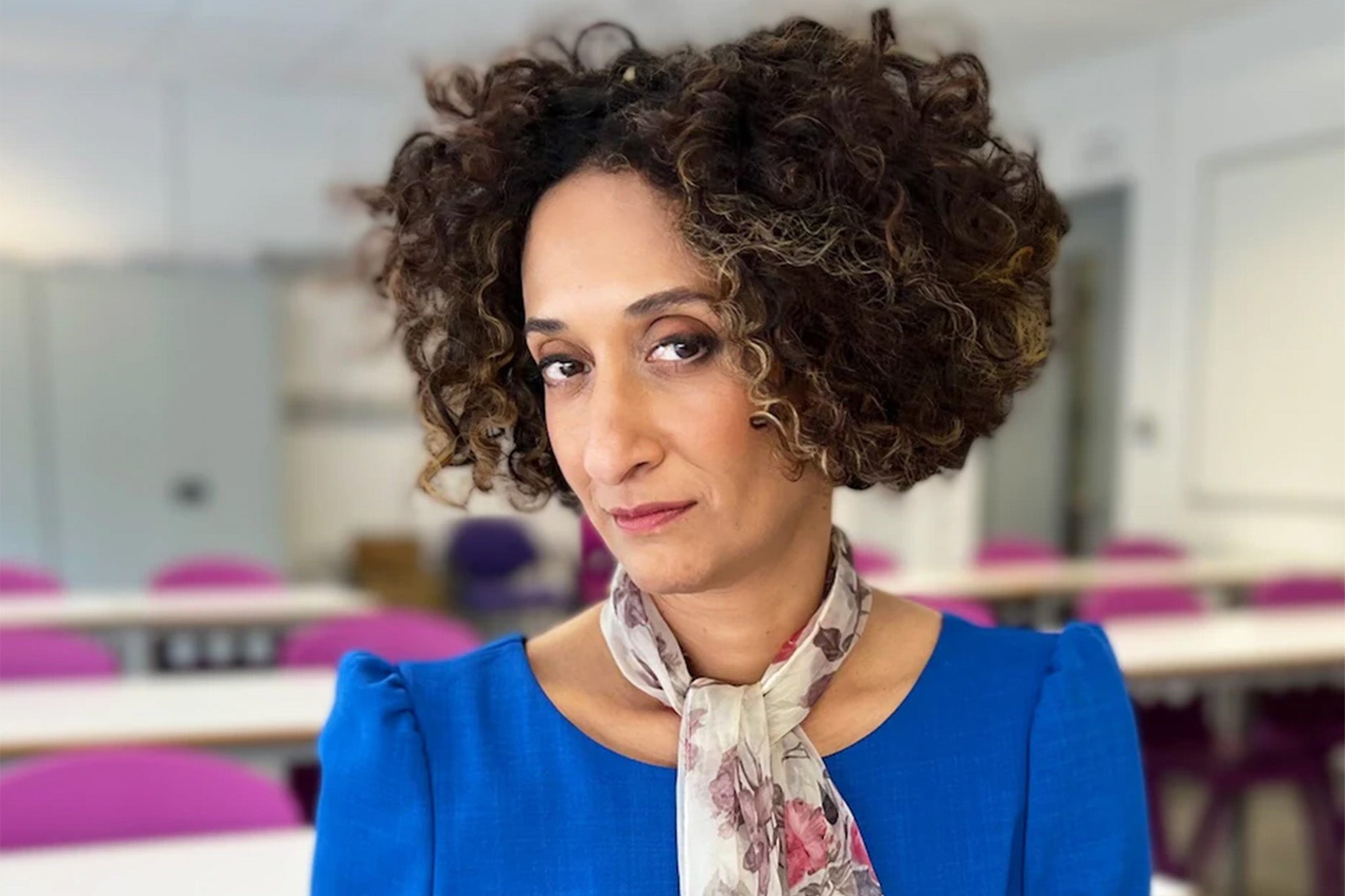No school – not even Britain’s ‘strictest headteacher’, Katharine Birbalsingh – should have the right to ban prayer
When it comes to religious freedoms, the UK is going backwards, argues Hira Ali


The high court ruling that the prayer rituals ban imposed at what was famously dubbed “Britain’s strictest school” in north-west London was lawful has been lauded as a triumph, when it is anything but.
I fear it is the latest evidence that, when it comes to religious freedoms, the UK is going backwards.
The Muslim pupil who argued the case in north-west London has claimed that the prayer ban that the policy is discriminatory and “uniquely” affects her faith due to its ritualised nature.
But headteacher, Katherine Birbalsingh – “Britain’s strictest headmistress” – has hailed the result as a “victory for all schools”.
“Schools should not be forced by one child and her mother to change its approach simply because they have decided they don’t like something at the school,” she added.
Birbalsingh co-founded the Michaela Community free school in 2014 with former home secretary Suella Braverman – and contends that a school should have the autonomy “to do what is right for the pupils it serves”. The real question, however, is whether denying a fundamental practice that forms a person’s core identity is in the best interest of the pupil it serves. And who gets to decide what constitutes this “right”, anyway?
In this instance, the matter transcends preference – it actually revolves around an essential daily practice in the lives of millions in the UK. As the mother of the student who challenged the prayer ban aptly points out: “Prayer isn’t just a desirable act but an essential element that shapes the lives of Muslims.”
The strictest headteacher in Britain also disputes the idea that Muslims are an oppressed minority at her school: “They are, in fact, the largest group,” she has said. “Those who are most at risk are other minorities and Muslim children who are less observant."
However, to me it seems essential to question: at risk from what? Isn’t it precisely these everyday casual comments that perceive religious practices as a threat and risk to others that perpetuate stereotypical and bigoted misconceptions about Muslims?
While I understand schools must adhere to policies and minimise disruption, would a 5–10-minute prayer break during lunchtime, outside of instructional hours, really pose a significant hindrance or accommodation challenge? I think not. Prayer doesn’t have to be disruptive – to the contrary. It can be quite private. In a separate room, if helpfully provided.
Yes, the school may have faced safety concerns and threats, but outright banning religious observance is not how to address them. Allocating a designated room within the school building for private prayer could acknowledge the importance of accommodating religious practices while ensuring the safety and comfort of all students.
The judge’s ruling to uphold the ban on prayer also reflects a predominantly Eurocentric perspective. His decision seems rooted in promoting the school community’s interests and the goal of inclusivity. However, ironically, this decision disregards the fact that prayer is an indispensable part of many individuals’ lives; reducing it to a discretionary or optional dismissible activity is an implicit act of exclusion, contradicting the initial aim of fostering cohesion and inclusion within the school community in the first place.
Moreover, allowing Muslim students to openly practice their faith not only normalises these rituals but also humanises them as individuals with diverse identities and practices. It fosters inclusivity and understanding within the school community rather than marginalising or alienating them based on their religious beliefs.
When fundamental rituals closely linked to one’s cultural and faith identity are called into question, disregarded, or denied, the repercussions can be profoundly impactful. Such experiences of othering may cause young individuals to hesitate about fully embracing their identity and integrating into their communities, posing a significant threat to their psychological and mental well-being and sense of safety.
It’s imperative for schools and organisations to critically evaluate their policies, considering whether they merely enforce regulations or inadvertently marginalise traditions and practices that diverge from the mainstream. Rather than outright dismissal, we should advocate for a nuanced, inclusive approach honouring the diversity of faiths and religious expressions where all students feel respected, supported, and empowered without the threat of discrimination or exclusion.
How do decisions made without regard for students’ freedom to choose serve their interests anyway? Or are decisions that refer to “students’ interests” meant to include everyone except practising Muslim students?
Hira Ali is an executive coach, leadership development specialist and speaker; she is also the author of two books: Her Way To The Top: A Guide to Smashing the Glass Ceiling and Her Allies: A Practical Toolkit to Help Men Lead Through Advocacy






Join our commenting forum
Join thought-provoking conversations, follow other Independent readers and see their replies
Comments